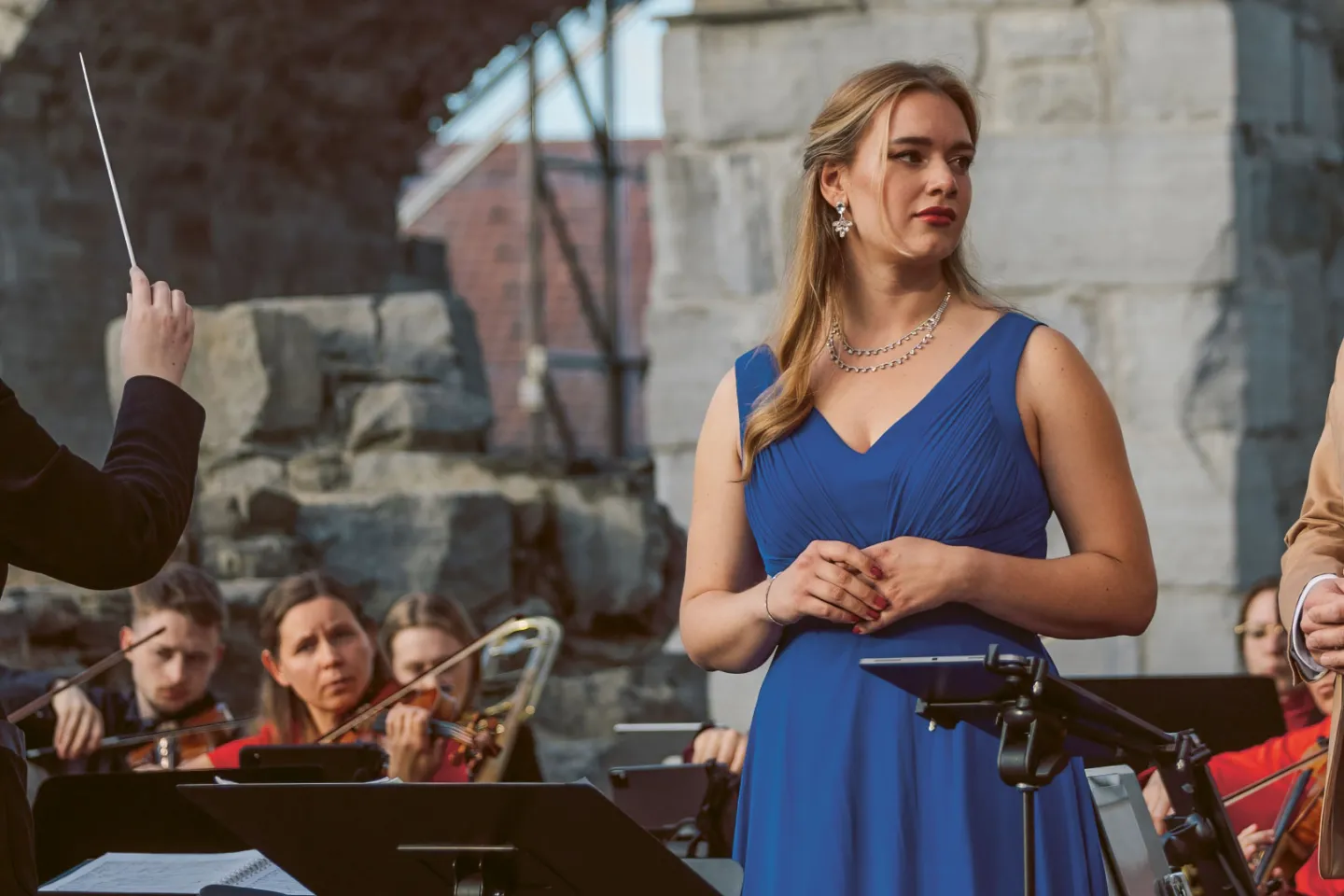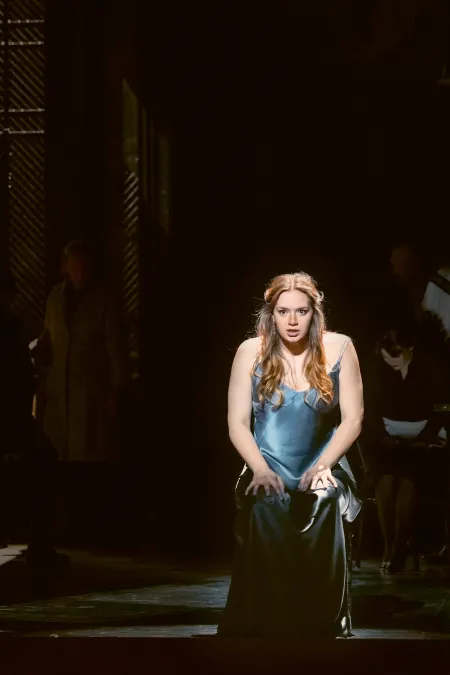Text: Ingrid Lughofer
The text was published in edition 2 (03/25).
Reading time 4 Min.
The vastness, wind and wistfulness of the North
With her debut recital the Norwegian soprano Hedvig Haugerud takes the audience of the Bregenzer Festspiele on a journey into the fascinating soundscape of Scandinavia. Together with the pianist Mats Knutsson she unleashes a recital program full of wild images of nature, melancholy longing and Nordic poetry.

With her powerful voice Hedvig Haugerud, born in Oslo in 1994, is one of the most promising talents of her generation. In August, she celebrates her debut at the Bregenzer Festspiele with a recital.
“I am very grateful that I have found my place in a business, where beauty, humanity and devotion count,” the young soprano Hedvig Haugerud tells us excitedly. “We make music because we love people.” The Norwegian comes from an artistic family, both parents are painters. “When I was a child, I thought that everyone had a studio and that making art was one of the most natural things on earth,” the singer remembers. Due to her interest in poetry, becoming a writer was one option. “But it was inevitable that I would become a singer because singing had always been an important part of my being: As a child, I sang all the time and needed this kind of communication.” Haugerud changed piano lessons for singing classes, one door after the other opened for her. She studied at the Norwegian Academy of Music, The Paris Conservatoire and the Royal Danish Opera Academy in Copenhagen, and she participated in masterclasses given by Anne Sofie von Otter, Bo Skovhus and Soile Isokoski. “And as no one told me to ‘stop’, I continued my way and try to get as far as possible.” For eight years now, she has been taking singing lessons with the internationally renowned voice teacher Susanna Eken, one of the most prominent Scandinavian vocal coaches.

For Haugerud music is a language on its own, and she loves to speak it. Because she thinks that in a concert the rational and effective way of thinking about life and society does not mean anything. “Classical music offers an experience that has nothing to do with everyday life and speaks directly to the soul. As an audience, we have to do nothing but be there. That is magical!”
She already won several awards for her immense talent: The young singer got a Richard Wagner Scholarship, won second prize at the Paris Opera Competition and last year she won first prize at the Lauritz Melchior International Singing Competition, one of the most well-known and largest Wagner competitions. In the upcoming season she will debut at the New National Theater, Tokyo as Chrysothemis in Richard Strauss’ Elektra, in Metz she already sang the leading role of the opera Salome, and was praised for her warm, rich and radiant voice.
“I have a great, dramatic, heavy and colorful voice. My options are not endless, however the German repertoire of Wagner and Strauss fits me perfectly. Luckily, I’m also drawn to that.”
Singing is a lifelong process; with her particularly challenging dramatic voice type , she will reach her peak between 40 and 50. That is why the soprano builds up her technique and her foundation so carefully. “It’s like a puzzle because it develops so slowly and takes discipline. You are responsible for taking only one little step a day. It’s almost as if I was taking care of a baby. It is allowed to grow but I don’t really know how it is going to develop.” Intrinsic motivation is just as necessary as competent support: “I had and still have people around me, who believe in me and who I can count on in this life mission.”
Her repertoire also includes songs by Strauss and Wagner, but at the recital at the Bregenzer Festspiele she will not present German but Nordic masters. What are the musical differences? “I see a lot of differences in the songs of Strauss and Edvard Grieg, essentially because Grieg’s piano and vocal pieces are inspired by folk music. You can clearly hear the Norwegian identity and cultural history.” A major theme in Nordic music, is the rough, wild and powerful landscape, which was also a main source of inspiration during the Romantic period. “Elements of nature are very common in the texts and the music,” the singer explains. “With Grieg you can find the beautiful, powerful yet mysterious Norwegian nature in the music.”
In addition, the language in which the songs are sung plays an important role. The program in Bregenz includes Norwegian, Swedish and Danish pieces - with translation- but also German-language songs by Grieg and Jean Sibelius. For Haugerud singing in German is easy as the Scandinavian languages have Indo-European roots. Similarities appear in the pronunciation with the strong consonants and bright vowels, the tone color and the structure.
Together with the pianist Mats Knutsson she chose emotional songs for the concert, “that have their own story and their own presence, that they don’t just get from my interpretation. They have their own will and create a special atmosphere and vibe. Every piece tells its own story.”
Im Sturm der Sehnsucht
Songs from the North
3 August 2025 – 7 p.m.
Festspielhaus, Seestudio


